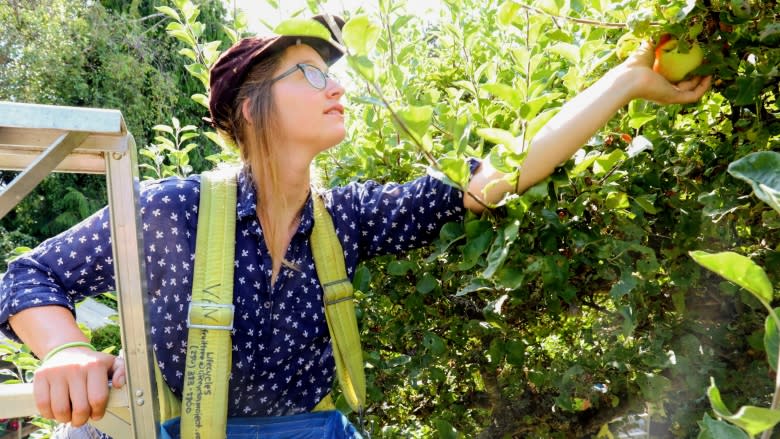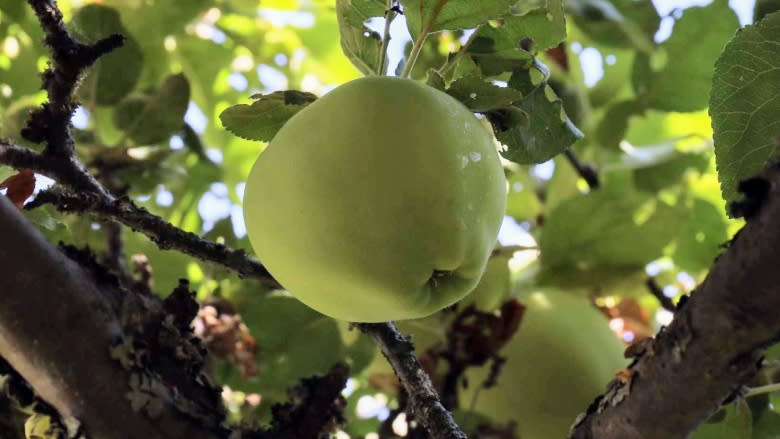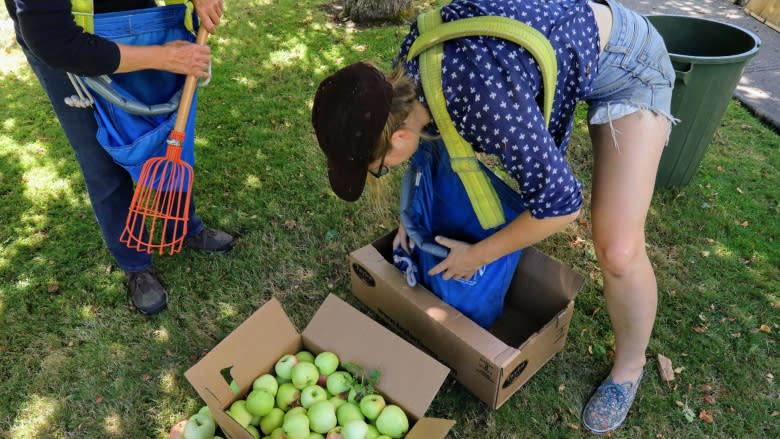Urban fruit harvesters team up with food share network to provide hand-picked produce
Access to good produce is something that is extremely important to Victoria non-profit organization LifeCycles.
Their aim? To connect people to the food they eat and the land it comes from.
LifeCycles' Fruit Tree Project harvests fruit from people's backyards. Usually they harvest apples, pears, plums, figs and cherries.
"Each year, we pick about a blue whale's worth of local produce and distribute it across the region," Matthew Kemshaw told CBC's Michael Mcarthur.
A volunteer effort
All of the fruit picking is done by volunteers. Each year, LifeCycles has about 500 volunteers who harvest fruit from the region. The project is also propelled by homeowners that register their trees.
"The homeowners love to see the food go to good use," said Kemshaw.
This is LifeCycles' 21st season operating the Fruit Tree Project. It is the oldest and largest fruit tree project in Canada.
"We've definitely seen a slow uptick in growth of our project over the 20 years that it's been in operation. It started off as a real grassroots operation."
Spreading the bounty
Volunteer pickers take 25 per cent of the harvest. Some fruit is left for homeowners. About 30 to 40 per cent of the fruit that is picked is distributed through the Food Share Network in the Capital Region. The product then goes out to about 60 different community agencies.
The Food Network Program is an umbrella organization, supplying food to 43 different agencies. It is a year-round program that began in March 2017.
The people that receive the food include 11 different Indigenous communities, seniors, schools, food banks and meal-and-hamper programs,
"We're really looking to expanding the impact of this food," Brenda Bolton, the co-ordinator of Food Share Network, told Mcarthur.
A dependable source
From August to November, many food banks in the Victoria area depend on LifeCycles as their main source of produce, said Kemshaw.
Based on fair-market value of product, LifeCycles harvests around $80,000 to $100,000 worth of produce per year, according to Kemshaw.
Homeowners can prepare for LifeCycles' visits by taking care of their trees.
"A lot of the trees in our urban orchard are in pretty rough shape," he said.
He suggests that tree owners prune, fertilize and water them during the drought season.




